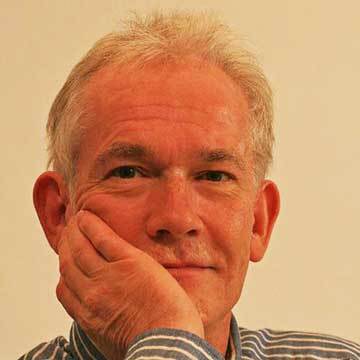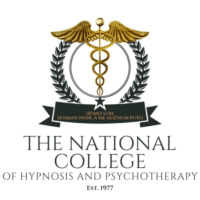
David Corr
Introduction
Some clients present in therapy wishing to resolve recent or long-standing trauma. However, many clients present wishing to address patterns such as anxiety, depression, self-harm, addictions, jealousy and so on – all of which can have their roots in trauma that is often, to a greater or lesser extent, unrecognised by the client. Hence, a vital part of any contemporary therapists’ training (both conceptual and practical) is learning to work Safely, Effectively and Confidently with both reported trauma and issues that may be the sequelae of trauma.
The training comprises 7 modules (the equivalent of 36 hours training/CPD) delivered via three platforms:
- Three Self-directed online elements
- One Live online seminar, and
- Five days of experiential training (demonstrations and practicums) which will only be delivered face-to-face.
Completion of the online material is a prerequisite for attendance at the face-to-face days.
What this workshop with cover
Module 1 – What is trauma? (self-directed online module)
- Definitions of Trauma
- Exploring the similarities and differences between Acute, Chronic, Complex and Developmental Trauma
Module 2 – The three-phase model of trauma treatment (self-directed online module)
- Introduction to the three-phase model
- Phase 1: Safety and Stabilization
- Phase 2: Trauma Processing and Memory Reconsolidation
- Phase 3: Integration and Post Traumatic Growth
- Phase 1: Safety and Stabilization
- The Therapeutic Alliance
- The Window of Affect Tolerance
- The Autonomic Nervous System and Polyvagal Theory
- Ego Strength and the ability to self-soothe
Module 3 – Trauma informed history taking (self-directed online module)
- Trauma Informed History Taking
- The strengths and weaknesses of 3 approaches:
- Detailed
- Complaint and Solution-focused
- Client-responsive
Module 4 – Review (live online seminar)
- Practicums
- Q&A
Module 5 – Phase 1 and 2 techniques (2 day live experiential workshop)
- Phase 1 techniques:
- Top down and bottom up techniques
- Demonstration and practicums
- Working with dissociative and suicidal states
- Phase 2 techniques: part a
- The V-K Double-Dissociation technique (‘Rewind’)
- The Flash Technique
- Progressive Counting
Module 6 – Phase 2 and 3 techniques (2 day experiential workshop)
- Phase 2 techniques: part b:
- Eye Movement Reconsolidation (EMR). This approach is based on the Eye Movement Integration model (developed by Connirae and Steve Andreas and extended by Danie Beaulieu) with novel elements developed by David Corr
- Demonstration and practicums
- Adjunctive processes:
- Memory Recoding
- Dream diary
- Journaling
- Letter writing
- Phase 3: integration and post-traumatic growth
- Strategies and challenges
Module 7 – Review (live in-person day)
- Review of Modules 1 – 6
- Supervision and troubleshooting
- Next steps
How this workshop will benefit you
The training is designed to equip you with a thorough grounding in contemporary theories of trauma and safe trauma treatment along with practical skills in several powerful approaches to desensitising and processing trauma memories.
Who is this workshop for?
This workshop presupposes a good knowledge of working relationally and a good understanding of, and facility in, using therapeutic interventions. Therefore, attendees will hold as a minimum the Certificate in Hypnotherapy and Psychotherapy from the National College (or equivalent). The workshop will also be appropriate for experienced therapists who wish to further develop their skills in working with trauma.
Certification
You will receive a Certificate of Attendance if you attend all modules of the training. Additionally, you may wish to receive a Certificate in Trauma Therapy from the National College of Hypnosis and Psychotherapy which requires full participation in all modules of the programme and a case report demonstrating utilisation of:
- an appropriate phase-oriented approach
- at least one of the taught desensitisation/reconsolidation approaches
- an appropriate post-traumatic growth strategy.
N.B. Parts of this course are experiential and full participation in these elements is a requirement of receiving the Certificate in Trauma Therapy.
Your tutor
This course will be led by David Corr. David is a UKCP Registered and Accredited psychotherapist and clinical supervisor. He has also taught for the National College on both Stages 2 and 3. David has over 30 years’ experience as a hypnotherapist and hypno-psychotherapist and has extensive training in several models of working with Trauma.
This Course at a Glance:
Tutor
- David Corr
Mode of Study
- Blended learning
- Self-study modules
- Face to face tuition
- Practical demonstration and exercises
Hours of Study
- 36 hours over 7 modules (36 hours CPD)
Maximum Participants
- 12
Cost
- £792 (£720 to NCHP graduates and NSTT) (can be paid in 12 monthly instalments)
Entry Requirements
- Practising hypnotherapists and hypno-psychotherapists
- Students and trainees having completed the Stage 2 training at NCHP
Course Dates
London
- Monday 3rd March 2025 – Access to self-study material for modules 1-3
- Saturday 15th March 2025 – module 4 (online via Zoom 10am – 1pm)
- 22nd/23rd March 2025 – module 5 (in person in London 10am-5pm each day)
- 12th/13th April 2025 – module 6 (in person in London 10am-5pm each day)
- Saturday 10th May 2025 – module 7 (in person in London 10am-5pm)
Manchester
- Monday 8th September 2025 – Access to self-study material for modules 1 – 3
- Saturday 20th September 2025 – module 4 (online via Zoom 10am – 1pm)
- 27th/28th September 2025 – module 5 (in person in Manchester 10am-5pm each day)
- 11th/12th October 2025– module 6 (in person in Manchester 10am-5pm each day)
- Saturday 8th November 2025 – module 7 (in person in Manchester 10am-5pm)
Course Venues
The Leonardo Royal St. Paul’s Hotel, 10 Godliman Street, London, EC4V 5AJ
Leonardo Hotel 56 Great Bridgewater Street, Manchester, M1 5LE
